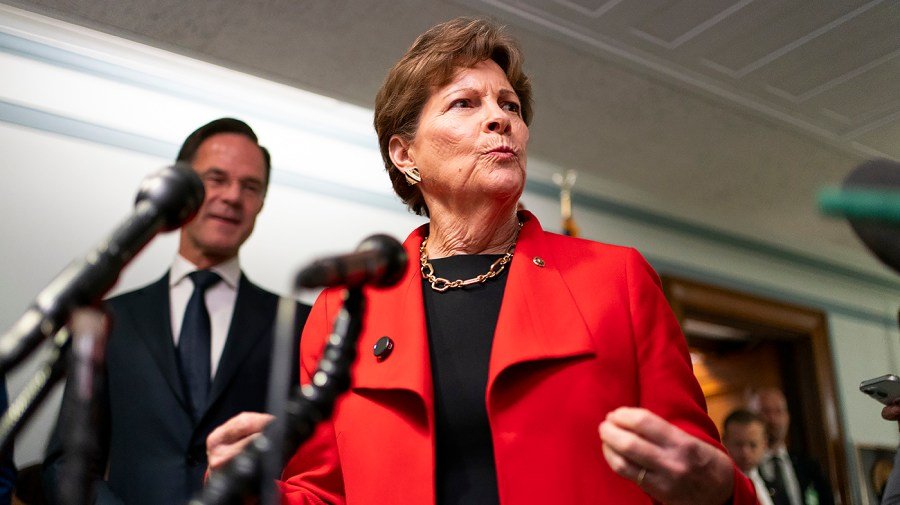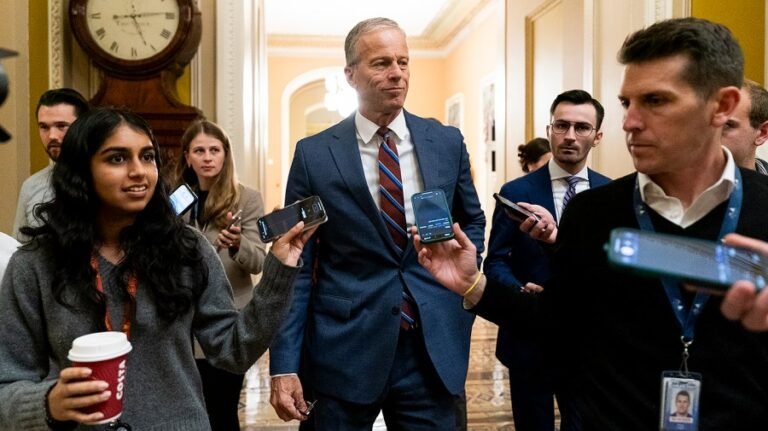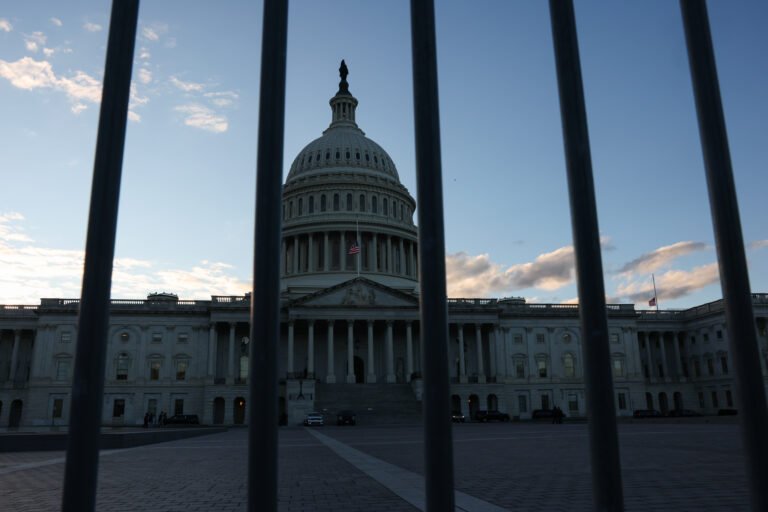
Sen. Jeanne Shaheen (D-N.H.), one of eight Senate Democratic Caucus members who voted to advance a measure to reopen the government, said Monday that critics of the group should “train their fire” on President Trump, House Speaker Mike Johnson (R-La.) and congressional Republicans.
“All those people who opposed this agreement, staying in a shutdown mode was not getting us anywhere,” Shaheen told CNN’s Kate Bolduan. “And they need to train their fire on the people who are responsible.”
Shaheen, along with Democratic Sens. Dick Durbin (Ill.), Maggie Hassan (N.H.), Tim Kaine (Va.), John Fetterman (Pa.), Catherine Cortez Masto (Nev.) and Jacky Rosen (Nev.), joined 52 Republicans in advancing a proposal to end the longest shutdown in U.S. history on Sunday. Independent Sen. Angus King (Maine), who caucuses with Democrats, also voted to advance the measure.
The proposal would fund military construction, veterans’ affairs, the Department of Agriculture and the legislative branch through September 2026 and the rest of government through Jan. 30. It also would retain over 4,000 federal workers the Trump administration targeted for layoffs during the shutdown and prevent it from firing additional federal employees until Jan. 30.
The Senate is set to vote on the measure, backed by Trump, in a series of votes early this evening.
The proposal, notably, does not include an extension of subsidies offered under the Affordable Care Act (ACA), a sticking point for the majority of Democrats throughout the shutdown. Multiple Democratic lawmakers, including House Minority Leader Hakeem Jeffries (D-N.Y.), have criticized the measure for that reason.
Shaheen, though, argued that reopening the government is an “opportunity” to negotiate on an extension of the ACA subsidies, which expire at the end of December. The New Hampshire Democrat, who is retiring at the end of next year, introduced legislation to permanently extend the credits in September 2024 and this past January.
“Because of this shutdown fight, we’ve had a number of Republicans who have figured out that this is an issue for them,” she said. “This is not a red state issue or a blue state issue, this is about making sure that people can afford their health insurance.”


